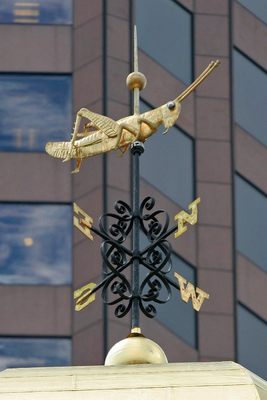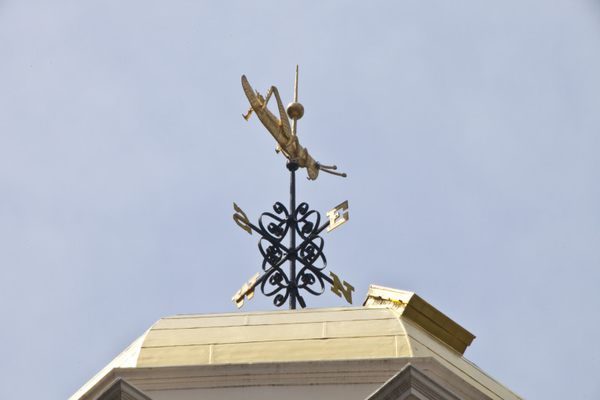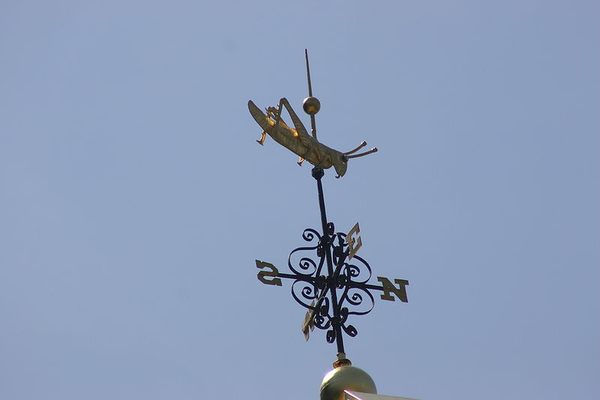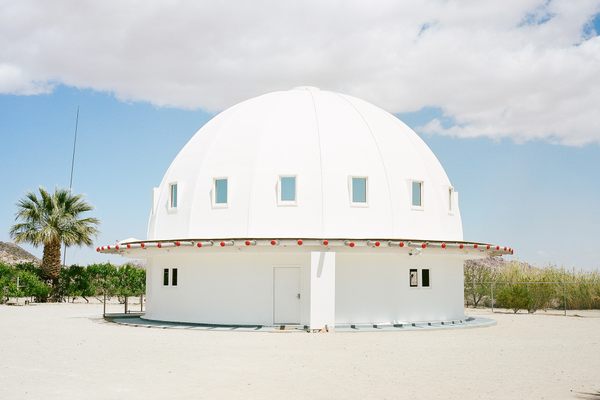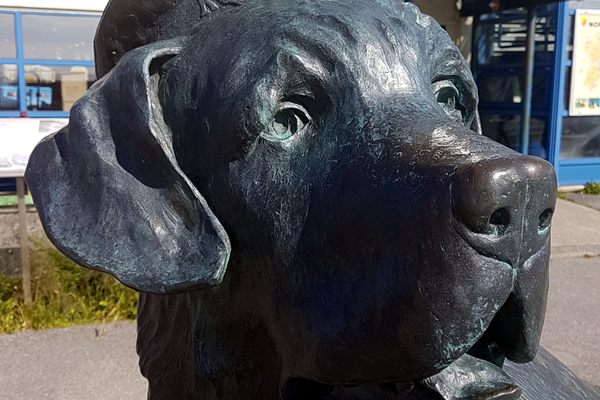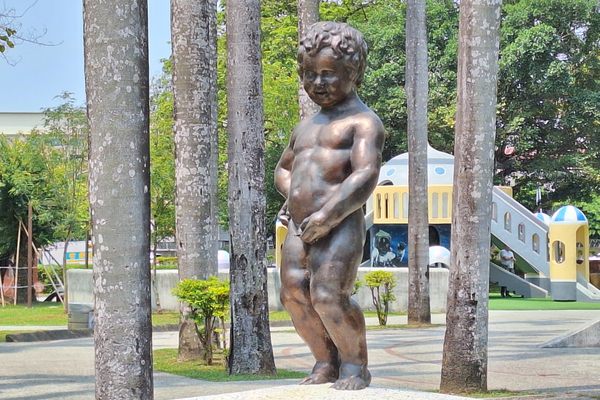About
The unusual weathervane at the top of Faneuil Hall almost looks big enough to have hopped up there 270 years ago just to check out the view.
The thirty-eight pound copper grasshopper has seen much of Boston’s history, and ingested some of it, too. Built in 1742 to reference the grasshopper on the Royal Exchange building in London, it began being used as a time capsule in 1761 with a note entitled “Food for the Grasshopper.”
This first note recorded its history thus far, with such insect tales as “To my brethren and fellow grasshoppers, Fell ...early in ye morning by a great earthquake by my old Master above,” in reference to the earthquake of 1755 that shook the critter from its perch. Since then, coins and notes have been added; each time it was brought down for repairs, the contents were examined and then put back into its belly for future generations.
Unfortunately, in 1974 the grasshopper went missing. It was found soon after, but its belly had been purged and its original contents never to be found. But don't worry - the insect isn't starving. A new round of documents and knick-knacks have begun to fill his gut once again.
The craftsman behind the weathervane was America’s first documented weathervane maker, Shem Drowne. From his workshop in the North End, he produced a lot of Boston’s weathervanes: you can see more of his creations around town, from the rooster that now adorns the First Church in Cambridge to the swallow-tailed banner on Old North Church.
Related Tags
Community Contributors
Published
August 23, 2012
